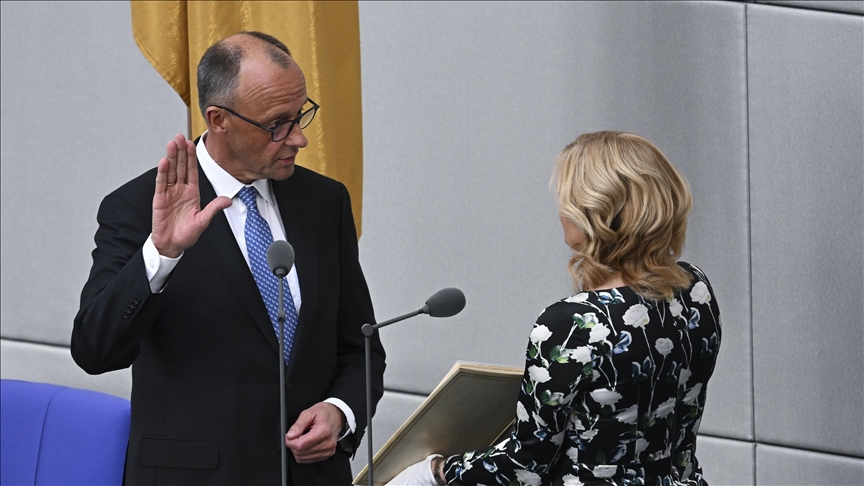 Friedrich Merz sworn in as Germany’s new Chancellor in Bundestag
Friedrich Merz sworn in as Germany’s new Chancellor in Bundestag
Berlin
Germany's conservative leader Friedrich Merz on Tuesday was sworn in as the country's new chancellor, 2 1/2 months after elections ousted his predecessor, Olaf Scholz.
Merz recited the following oath in the German parliament (Bundestag) in Berlin: "I swear that I will dedicate my strength to the well-being of the German people, increase their benefits, avert harm, uphold and defend the Constitution and the laws of the Federation, conscientiously fulfill my duties, and practice justice toward everyone, so help me God."
The first Cabinet meeting under Chancellor Friedrich Merz will take place later this evening after its ministers are appointed by German President Frank-Walter Steinmeier, according to the chancellery.
Earlier in the day, Germany's parliament elected conservative Friedrich Merz the country's new chancellor in a second round of voting after unexpectedly failing to secure a majority in the first ballot.
The 69-year-old leader was elected by deputies from his own conservative CDU/CSU alliance and their junior coalition partner, the Social Democratic Party (SPD).
A total of 325 members of parliament voted for Merz, while 289 voted against him. The conservative leader needed 316 votes for an absolute majority in the 630-seat parliament.
The surprise first-round setback occurred even though Merz's coalition controls 328 seats in the Bundestag. Due to the use of a secret ballot, it is unclear how many lawmakers from the coalition parties voted against Merz's chancellorship in round one.
Merz, after getting parliamentary approval, became Germany's 10th chancellor since World War II. He secured this position after his Christian Democrats clinched a coalition deal with the Social Democrats following Feb. 23 snap elections.
In the new coalition government, the conservative CDU/CSU alliance will oversee crucial portfolios including foreign affairs, interior affairs, and the economy ministries. The Social Democrats will head seven ministries, including finance, defense, and labor, according to the agreement.
The Christian Democrats won the snap elections with 28.5% of the vote but fell short of an outright majority. Though the Social Democrats recorded their lowest-ever result at 16.4%, they emerged as a crucial coalition partner for forming a stable majority government.








